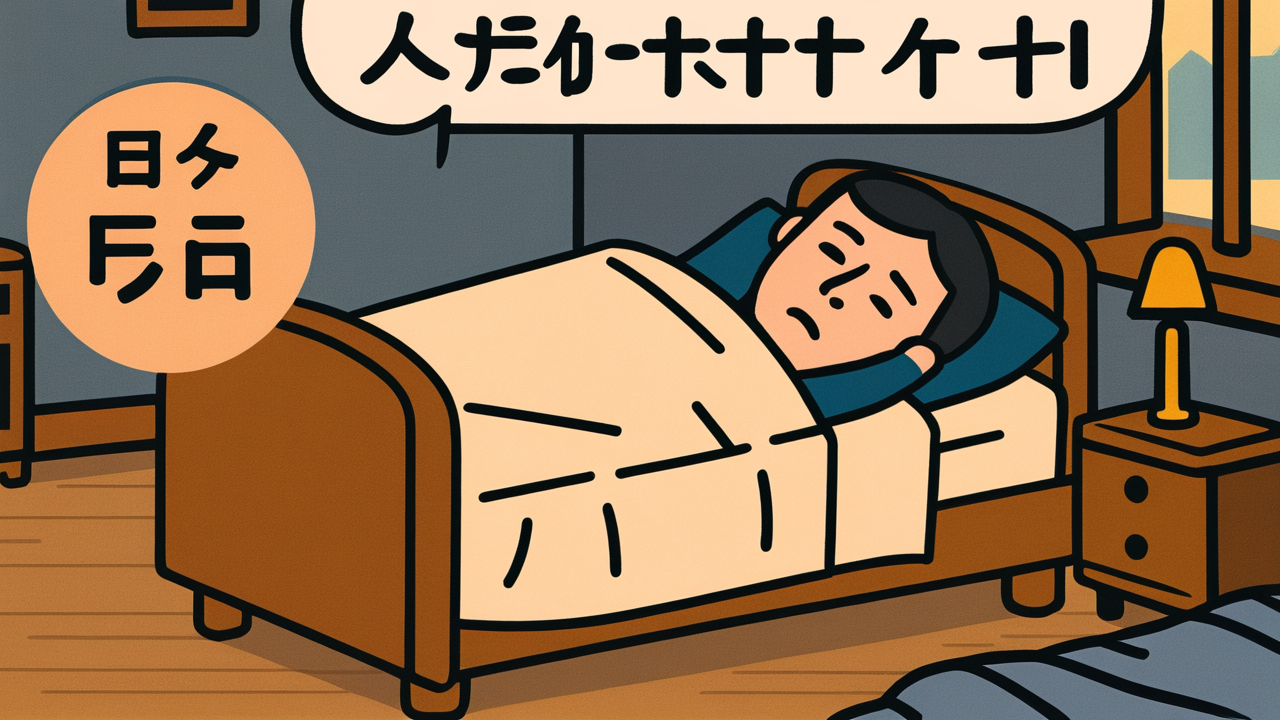How to Read “風邪は万病の元”
Kaze wa manbyou no moto
Meaning of “風邪は万病の元”
This proverb means that even a seemingly minor illness like a cold, if not taken seriously and properly treated, can become a trigger for more serious diseases.
When you catch a cold and continue working without rest, or fail to get adequate recuperation, your body’s immune system weakens, potentially developing into serious illnesses like pneumonia or bronchitis. Additionally, when your physical strength is depleted by a cold, you become more susceptible to other infections.
This proverb is used when encouraging someone who is beginning to show cold symptoms to take early action, or as a warning to those who are being careless because their symptoms seem mild. Even for modern people who tend to think lightly of “just a cold,” this is an important teaching that reminds us of the basics of health management.
Origin and Etymology
The origin of the proverb “Cold is ten thousand diseases’ origin” can be traced back to classical Chinese medical texts. In traditional Chinese medicine, the term “cold” referred not only to modern cold syndrome but to all external causes of disease that invade the body.
Particularly noteworthy is that “cold” here was read as “fuuja.” This was one of the “six pathogenic factors” in Chinese medicine – wind, cold, heat, dampness, dryness, and fire – among which wind-cold was considered the most fundamental and important. Wind-cold played the role of carrying other pathogenic factors into the body, which is why it was also called “the leader of a hundred diseases.”
This concept was introduced to Japan during the Nara to Heian periods, initially used as specialized medical terminology. However, as time passed, the reading “kaze” referring to common cold symptoms became established and widely used among the general population.
This expression, which frequently appeared in medical texts and health guides during the Edo period, became established as a standard phrase when explaining the importance of preventive medicine.
Usage Examples
- I’ve been feeling tired lately, so even though I just have a runny nose, Cold is ten thousand diseases’ origin, so I’ll go home early today and rest
- My child has started coughing, but Cold is ten thousand diseases’ origin, so I’ll have them skip school tomorrow and take them to the doctor
Modern Interpretation
In modern society, “Cold is ten thousand diseases’ origin” is showing new expansions of meaning. Especially since the COVID-19 pandemic, awareness has increased throughout society that even mild symptoms should not be taken lightly. With the spread of remote work, the option of staying home to recuperate while continuing to work when feeling under the weather has emerged.
Additionally, with advances in modern medicine, the possibility that colds may be precursors to other diseases has been explained in detail. It has been scientifically proven that weakened immunity increases the risk of various diseases, bringing renewed attention to the correctness of this proverb.
On the other hand, as a negative effect of the information society, more people are researching minor symptoms on the internet and suspecting serious diseases, becoming excessively worried. The phrase “Cold is ten thousand diseases’ origin” is sometimes used as material to fuel anxiety.
In the modern era, with the spread of health management apps and wearable devices that allow us to track changes in our physical condition numerically, this proverb is also interpreted with the new message: “Don’t overlook even minute changes that don’t appear in data.”
When AI Hears This
When cold viruses invade the body, the immune system fights back by releasing massive amounts of inflammatory substances called “cytokines.” However, when this immune response becomes excessive, it leads to a condition called “cytokine storm,” where chronic inflammation spreads throughout the entire body.
The latest immunology research has revealed that this chronic inflammation is actually the common underlying cause of diseases that rank among the top causes of death in modern society. Inflammatory cytokines like IL-6 and TNF-α damage the vascular endothelium, accelerating atherosclerosis and tripling the risk of heart attacks and strokes. Furthermore, chronic inflammation damages DNA, promoting cancer cell growth, and in the brain, it destroys nerve cells, increasing the probability of developing Alzheimer’s disease by 2.5 times.
Particularly noteworthy is the concept of “inflammaging” – inflammatory aging. The disruption of the immune system caused by colds creates a chronic inflammatory state that accelerates aging, leading to diabetes, arthritis, and even depression. Harvard University research has proven that people who catch colds three or more times per year have a 40% higher mortality rate from cardiovascular disease compared to those who get sick once or less annually.
What the people of the Edo period intuitively recognized as “a cold is the source of all illnesses” was actually the precise scientific truth that modern immunology has uncovered: a single infection can disrupt the entire immune system and lay the foundation for all kinds of diseases.
Lessons for Today
What this proverb teaches modern people is the importance of not overlooking small signs. In our busy daily lives, we tend to ignore our body’s voice, but minor ailments are important messages from our bodies.
In modern society, “working hard” tends to be considered a virtue, but sometimes we need the courage to stop and face our own bodies. Taking honest rest when feeling early cold symptoms is not weakness at all. Rather, it’s a wise decision to protect long-term health.
This proverb also teaches us about mental health, not just physical health. Small stresses and worries, if left unattended, can potentially develop into major problems. Early care and appropriate response are fundamental to living a rich life.
Your body is a precious partner you’ll be with for life. By listening to its voice and caring for it, you can surely spend long, healthy, and fulfilling days.



Comments